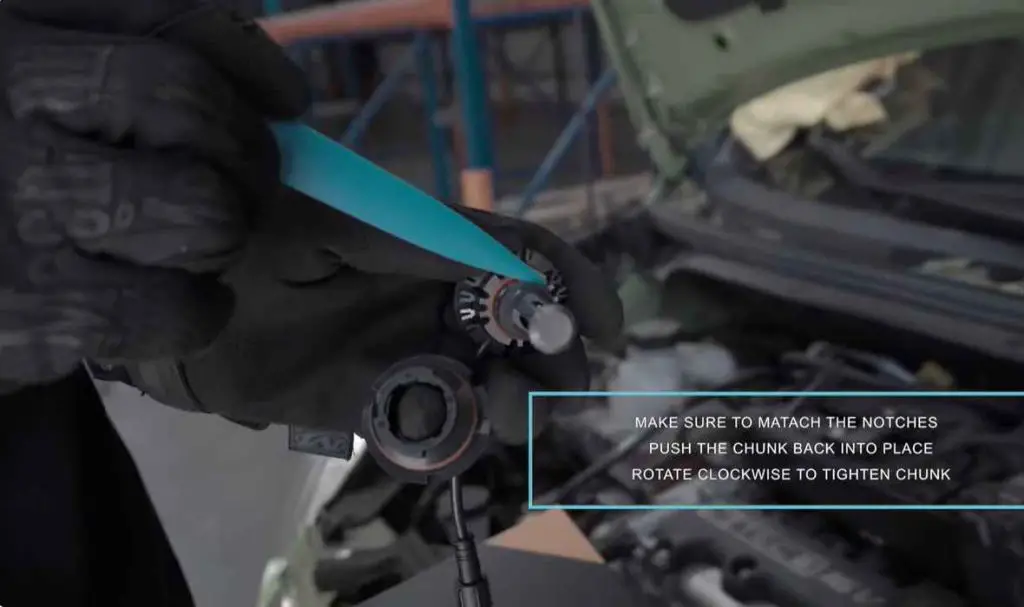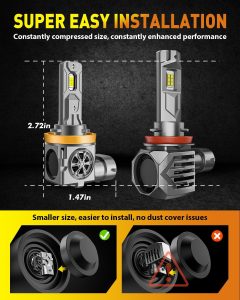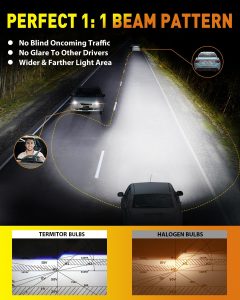Headlight bulbs cannot typically be put in upside down due to their design. Most bulbs have keyed bases or notches that match a specific orientation.
Proper installation of headlight bulbs is crucial for vehicle safety and road visibility. These components are designed with specific fittings that prevent incorrect installation, ensuring that the beam pattern is directed correctly to illuminate the road without blinding other drivers.
When anybody wants to know that can Headlight Bulbs Be Put in Upside Down? The answer is no, Typically automotive bulbs such as halogen, xenon, or LED bulbs, come with a plug or tab configuration that aligns with the headlight housing, making it nearly impossible to insert them incorrectly.
Car owners and mechanics should always refer to the vehicle’s manual or consult with professionals if there is any confusion during the replacement process. With the right approach, you can avoid common mistakes and ensure your headlights function correctly, keeping you safe on the road.
Introduction To Headlight Bulbs
Headlights guide the way when you drive at night. Good headlights ensure safe driving. Yet, can bulbs fit upside down? Let’s uncover this mystery in headlight systems.
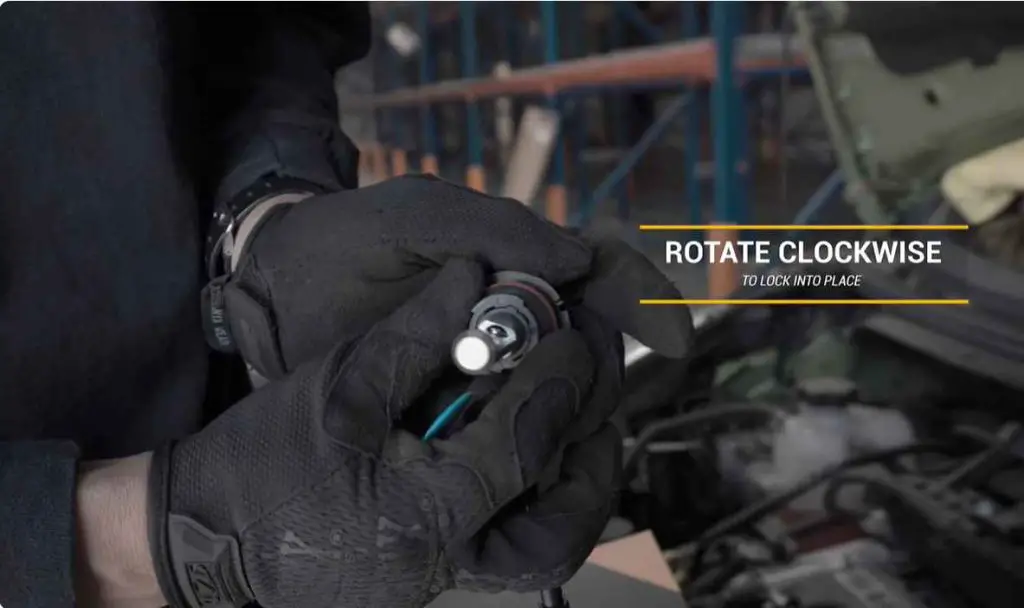
Understanding The Basics Of Headlight Bulbs
Headlight bulbs are crucial for cars. They light the road ahead and signal others. Bulbs need correct installation. Upside-down fitting can cause issues. It can lead to poor light patterns.
- Connectors and Notches: Headlights have guides. They prevent upside-down fits. If forced, damage can occur.
- Beam Direction: Each bulb directs light. Positioned wrong, they blind others. Correct fitting aids visibility.
Common Types Of Headlight Bulbs In Vehicles
Various bulbs exist in cars. Each has unique features. Knowing them helps avoid upside-down fitting. It ensures proper installation.
| Type | Brightness | Life |
|---|---|---|
| Halogen | Standard | Long |
| LED | High | Very Long |
| HID/Xenon | Very High | Long |
Each bulb type fits differently. They require careful attention. This stops the upside-down installation. Proper fit ensures the best performance.
Orientation Of Headlight Bulbs
Orientation of Headlight Bulbs plays a crucial role in road safety. It ensures that you have a clear view at night and also helps to prevent blinding oncoming traffic. Correct bulb position is essential for optimal headlight performance.
Importance Of Proper Bulb Installation
- Bright, clear vision during night driving
- Helps avoid accidents by lighting the road correctly
- Prevents blinding other drivers, ensuring safety for all
Can Headlight Bulbs Be Installed Upside Down?
Many ask if it’s possible to install bulbs upside down. Headlight bulbs must fit in a specific manner. Most modern headlight bulbs are designed with guides or notches. These features ensure bulbs fit only one way. This design prevents incorrect installation, which could lead to dim lighting or misaligned headlight beams. Here are key points illustrating proper installation:
| Feature | Function | Installation Impact |
|---|---|---|
| Guides | Align bulb in housing | Guide incorrect insertion |
| Notches | Prevent rotation | Ensure snug fit |
| Pins | Determine orientation | Block upside down placement |
Check the vehicle’s manual for model-specific instructions. Seeking professional help is wise if you’re unsure. Modern vehicles also feature bulb fitting warnings to notify of incorrect installation. It’s essential to pay attention to these warnings.
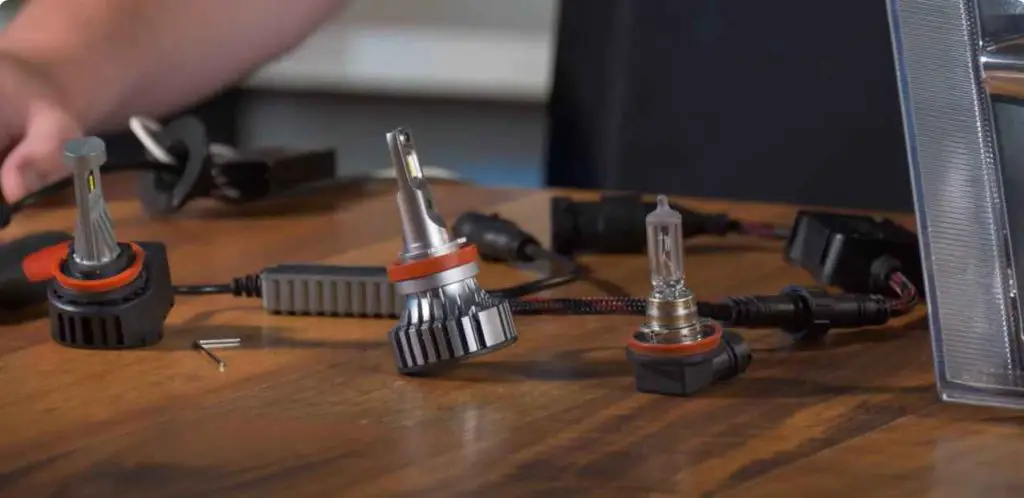
Mechanisms Preventing Upside-down Installation
Installing headlight bulbs seems straightforward. But bulbs can get damaged if put in wrong. Good news? Cars have built-in tricks to stop that. These tricks ensure bulbs fit just right, like a key in a lock. Here’s how they do it.
Design Of Bulb And Housing
Car lights are like puzzle pieces. Each bulb fits its own space. Ever noticed the bulb shape? They’re not round. They have edges and tabs. These tabs slide into slots inside the light housing. This design makes sure the bulb goes in one way—the right way. This means lights shine ahead, not at the sky.
Keying And Alignment Features
Bulbs and sockets have special marks. These keying features guide you. Think of it as a map. You match the marks, and the bulb clicks into place. No force is needed. If the marks don’t match, it won’t fit. Simple, right? This protects the bulb from breaking and your car from bad wiring.
- Tabs on the bulb match grooves in the housing.
- Notches on the bulb align with ridges in the socket.
- Each car model has a unique keying system.
Consequences Of Upside-down Installation
Installing headlight bulbs incorrectly can lead to serious issues. It’s like putting shoes on the wrong feet. Things just won’t work right! Let’s explore what can happen when headlight bulbs face upside-down.
Impact On Illumination And Visibility
- Your car’s headlights are designed to shine forward, not scatter light.
- Upside-down bulbs create poor lighting and confuse other drivers.
- This can make nighttime driving dangerous for everyone.
Imagine a flashlight pointed at the sky during a dark walk in the woods. You can’t see the path! That’s what upside-down bulbs do; they muddle the light pattern your car needs to light the road.
Potential For Damage To The Headlight Assembly
- Headlights fit in a precise position to avoid harm.
- Wrong installation can scratch or break your car’s headlights.
- It can also lead to costly repairs.
Think of it as forcing a square peg into a round hole. It won’t fit properly, and you might end up breaking both. Upside-down bulbs can press against parts of the headlight assembly, causing avoidable damage.
Diagnostic Signs Of Incorrect Bulb Installation
Spotting issues with headlight bulb installation is critical for safe driving. Learn the tell-tale signs now. Some bulbs can fit improperly, causing problems. Discover how to identify these errors with a visual check and by noting light performance issues.
Visual Inspection Of The Bulb Position
Start with the bulb itself. Look for markers or notches on the bulb and the socket. They should align. A bulb that seems loose or tilted often signals an issue. A visual match means proper installation.
Symptoms Of Improper Lighting
Notice odd patterns on the road. Wrongly installed bulbs yield poor illumination. Watch out for these symptoms:
| Issue | Description |
|---|---|
| Uneven lighting | One side is darker. |
| Glare | Light scatters, blinding others. |
| Dim output | Light is weak, not reaching far. |
| Misaligned beams | They point up or down, not straight. |
Check your car’s manual, or get professional help if in doubt. A well-lit road is a safer road.
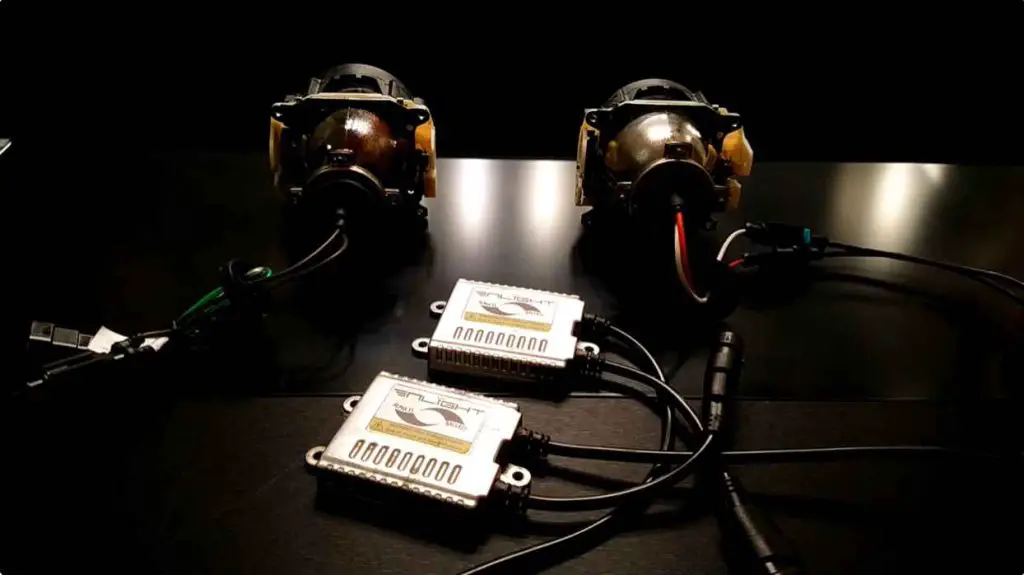
Correcting Improperly Installed Headlight Bulbs
Installing a headlight bulb incorrectly is a common mistake. But it’s also easy to fix. Not only can it lead to poor visibility, it can also cause oncoming drivers to be temporarily blinded. Ensuring bulbs are correctly positioned is vital for road safety. This section will guide you through the proper steps to rectify this error.
Step-by-step Guide To Proper Installation
- Switch off your vehicle and open the hood.
- Locate the headlight holder, usually behind the headlight.
- Disconnect the power wires. They’re often secured by a plastic catch, a metal clip, or a screw cap.
- Remove the existing bulb by holding the base. Do not touch the glass with bare hands.
- Examine the alignment notches on the bulb and holder. They should match up perfectly.
- Insert the new bulb carefully into the holder. Ensure it is not upside down.
- Reconnect the power wires and secure everything back into place.
- Test the headlights to check alignment and functionality.
Always refer to the vehicle’s manual before attempting the replacement. This ensures you follow the manufacturer’s guidelines.
Professional Assistance And Vehicle Servicing
If you’re uncomfortable performing these tasks yourself, seek professional help. Mechanics are trained to handle such issues effortlessly. Regular vehicle servicing also includes headlight checks and adjustments. It guarantees your headlights are always functioning properly. Remember, safety comes first!
Schedule regular checks to prevent issues before they arise. Properly installed headlights ensure optimal performance and maintain road-worthy vehicle conditions.
Tips For Diy Headlight Bulb Replacement
Tackling headlight bulb replacement yourself saves money and time. With the right approach, even beginners can do it safely. This guide helps you ensure a successful DIY headlight bulb swap. Follow these tips and get your lights shining bright again!
Tools And Precautions For Safe Replacement
Before you start, gather all the necessary tools. Safety comes first so also consider precautions. Here’s a helpful list to get you prepared:
- New headlight bulbs
- Gloves to prevent oils from hands from touching the bulbs
- Correct-size screwdrivers or torx drivers
- Alcohol wipes for cleaning any accidental fingerprints on bulbs
Never touch the glass of the bulbs with bare hands. Oils shorten their life. Always work in a well-lit area. Turn off the vehicle and wait for the headlights to cool down.
Ensuring Correct Orientation During DIY Installation
Can headlight bulbs be put in upside down? The short answer is yes, but they shouldn’t be. Installing bulbs the right way is critical for proper beam patterns. Use these steps to get it right:
- Check the bulb holder and car manual for orientation notes.
- Notice the tabs on the base of the bulb. They should align with the housing.
- If the bulb doesn’t fit easily, don’t force it. It may be upside down.
- Once in place, turn it gently until it clicks or locks.
Correct installation is a breeze with these steps. Remember, a bulb in the wrong way can cause dim lighting or blinding oncoming drivers.
Understanding Led And Hid Bulb Orientation
Ensuring your vehicle’s headlights are properly installed is crucial. It affects visibility and safety. This section dives deep into the orientation specifics for LED and HID bulbs.
Unique Considerations For Led Headlight Bulbs
LED bulbs have a distinct design that ensures they shine correctly. Unlike traditional bulbs, LEDs push light in just one direction. This means proper orientation is vital.
- LEDs come with notches or tabs that fit specific slots in the housing.
- Correct installation prevents glare to other drivers.
- Always match the bulb’s locking pins with the headlight assembly.
- Error in orientation leads to dim light or uneven beam patterns.
Installation Differences In Hid Bulbs
HID bulbs, or High-Intensity Discharge lamps, have different installation needs. Orientation matters as much as with LEDs.
| Feature | Importance |
|---|---|
| Base Design | Must match the headlight housing. Incorrect installation leads to reduced output. |
| Gas and Filaments | Misalignment can affect light intensity and focus. |
| Plug Orientation | Prevents shorts and ensures proper electrical connection. |
- Align the bulb base accurately.
- Check the wiring harness for correct polarity.
- Ensure seals are tight to avoid moisture.
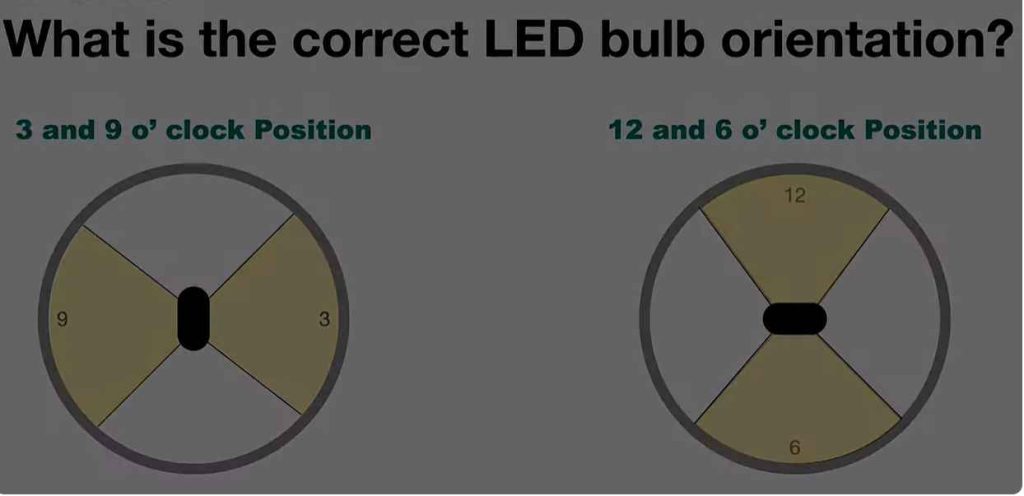
Headlight Bulb Installation Standards And Regulations
Welcome to our deep dive into Headlight Bulb Installation Standards and Regulations. Proper placement of headlight bulbs is crucial for driving safety. Let’s explore the guidelines and laws that govern how you fit a bulb into your car’s headlight.
Automotive Lighting Standards
Automotive lighting carries strict standards. These reflect both a need for road safety and consistency among vehicles. Countries set rules on how to fit headlight bulbs. These rules make sure bulbs provide the right amount of light and direction.
| Criteria | Description |
|---|---|
| Consistency | Bulbs must fit in a standardized way. |
| Orientation | Correct bulb positioning is critical for beam pattern. |
| Brightness | Bulbs should emit enough light for road illumination without blinding others. |
Compliance With Road Safety Regulations
Drivers must follow road safety regulations. These include rules for bulb installation. Upside-down bulb installation can lead to reduced visibility. It could be dangerous or even illegal.
| Regulation Area | Description |
|---|---|
| Beam Direction | The beam must point down and slightly to the right. |
| Intensity Control | Headlights should not blind oncoming traffic. |
| Alignment | Bulbs must align with reflective surfaces for proper beam pattern. |
Fitting headlight bulbs wrongly can lead to fines. It also compromises on-road safety. Always ensure you understand and follow the local guidelines when installing headlight bulbs in your car.
Troubleshooting Common Headlight Bulb Issues
Is your car’s vision not as sharp at night? Headlight bulb issues are like poor vision, making night driving hard. Let’s fix these common problems together.
Solving Flickering And Dimming Problems
Are your headlights flickering like a spooky movie? Or maybe they’re dimmer than a candle? No need to be scared; there’s a fix.
- Check the bulb: Make sure it’s the right type and properly installed.
- Look for corrosion: Dirty contacts can cause issues. Clean them gently.
- Secure connections: Loose wires make headlights unhappy. Tighten them up.
- Inspect the alternator: It powers the lights, so it must work well.
Bulbs right-side-up matter. Upside-down ones won’t shine bright.
Handling Bulb Outage And Electrical Issues
Lights out? No problem. Time to play detective and find out why.
- Test the bulb: Swap it out to see if it’s the problem.
- Examine fuses: A blown fuse can be the culprit. Replace if needed.
- Use a voltmeter: Check for power at the headlight socket.
- Inspect wiring: Frayed or broken wires need attention.
Bulbs in upside-down can cause an outage. Always double-check.
Technological Advancements In Headlight Systems
Advancements in vehicle technology have significantly improved the way we experience night driving. Modern headlight systems are a testament to this progress. As we delve into the realm of car headlights, we often wonder: is it possible to install headlight bulbs upside down? Let’s explore how innovations are addressing this concern and what the future holds for vehicle lighting.
Innovations Preventing Incorrect Bulb Installation
Car manufacturers recognize the importance of error-proof headlight installation. Recent developments in bulb design ensure a proper fit every time. Unique notch patterns on bulbs and sockets make mismatches almost impossible. Here are a few ways technology is helping:
- Polarity-Sensitive Connections: Connectors that only fit one way.
- Guided Fitment: Notches and grooves match up for a precise fit.
- Lock-In Technology: Bulbs lock firmly into place.
Future Trends In Vehicle Lighting
The horizon of vehicle lighting holds exciting innovations. Smart headlights are on the rise, leveraging adaptive technologies:
| Feature | Description |
|---|---|
| LED Matrix | Lights that adapt to road conditions in real-time. |
| Laser Headlights | Long-range visibility with minimal energy use. |
| OLED Technology | Thin, efficient, and allows for unique light shapes. |
Furthermore, innovations like intelligent sensors and automatic adjustments align beams perfectly, irrespective of load or road tilt. This makes the concern of upside-down bulb installation nearly obsolete. We’re driving toward a future where headlights not only light up the road but also intelligently interact with the environment for optimal safety and comfort.
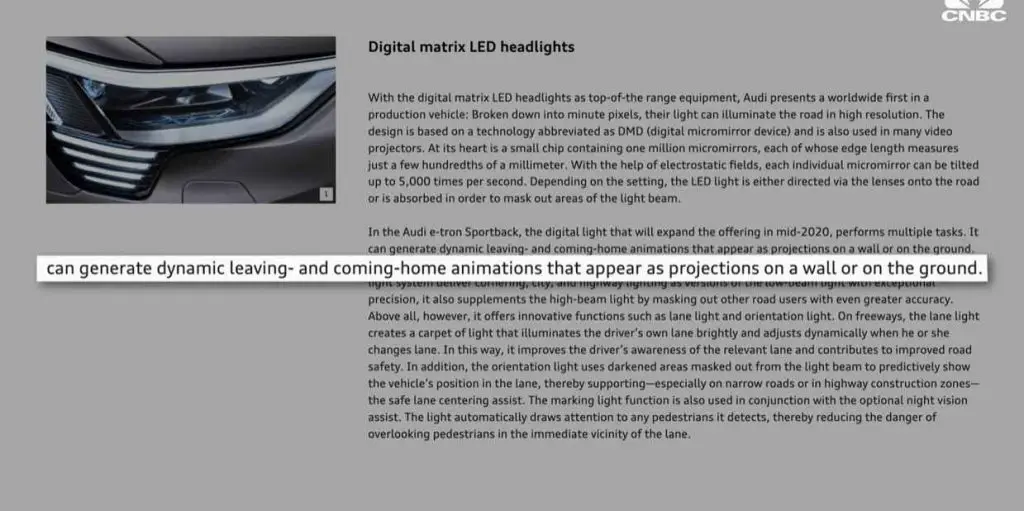
Conclusion And Best Practices
The ‘Conclusion and Best Practices’ part of our blog is crucial. It wraps up key points on headlight bulb installation. Following best practices ensures safety and performance on the road.
Recap Of Proper Bulb Installation
Let’s rewind and touch on installation essentials. Always match the bulb type with your car’s requirements. Align the notches and grooves carefully. This ensures a snug, correct fit.
Maintaining Headlight Efficiency And Safety
Constant checks keep headlights sharp and safe. Clean the lenses regularly. Replace bulbs in pairs to avoid uneven lighting. Have a professional check alignment annually.
- Check: Align bulbs correctly, not upside down.
- Clean: Wipe headlight lenses often.
- Replace: Change both bulbs together.
- Inspect: Get yearly alignment checks.
Proper maintenance extends bulb life. It keeps your path lit up at night. Always stay true to the vehicle’s manual. Safe driving to all!
Frequently Asked Questions On Can Headlight Bulbs Be Put In Upside Down
Can Led Headlights Be Put In Upside Down?
LED headlights should be installed correctly to ensure proper beam pattern. Installing them upside down can cause poor illumination and potentially dazzle oncoming traffic. Always follow the manufacturer’s installation instructions.
Which Way Should Headlight Bulbs Face?
Headlight bulbs should face straight ahead and slightly downwards to improve road visibility without blinding oncoming traffic. Always align them to manufacturer specifications for optimal performance.
Can You Put A Lamp Upside Down?
Generally, it’s not advisable to place a lamp upside down due to stability and safety concerns. The design of most lamps doesn’t support inverted positioning, which could lead to damage or fire hazards. Always follow the manufacturer’s instructions for proper use and placement.
What Should You Never Do When Changing Your Headlight Bulbs?
Never touch headlight bulbs with bare hands; oils can damage them. Avoid using excessive force to prevent damage. Don’t disregard safety precautions; ensure power is off. Never rush the process; handle it with care. Don’t install incompatible bulb types; always check specifications.

